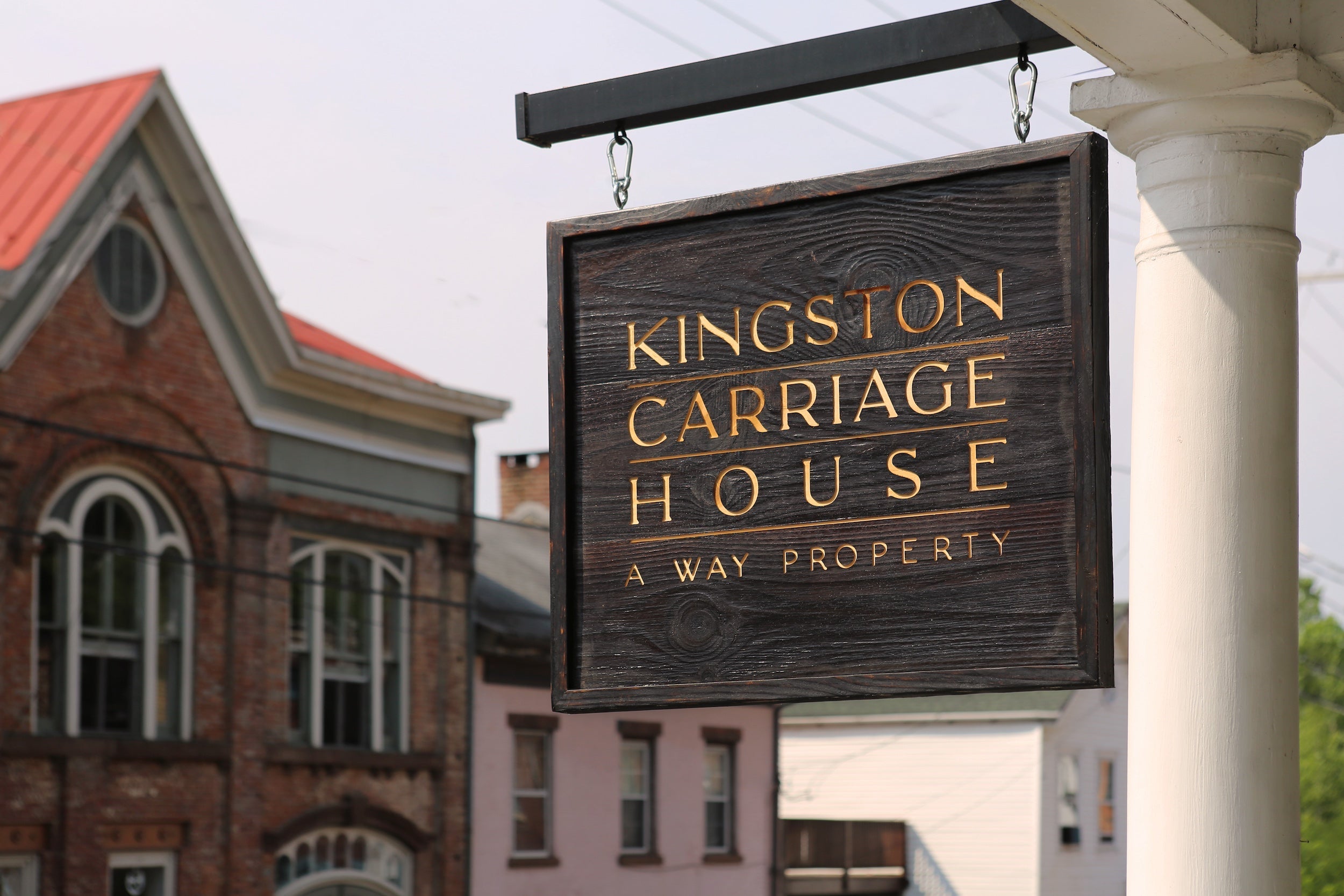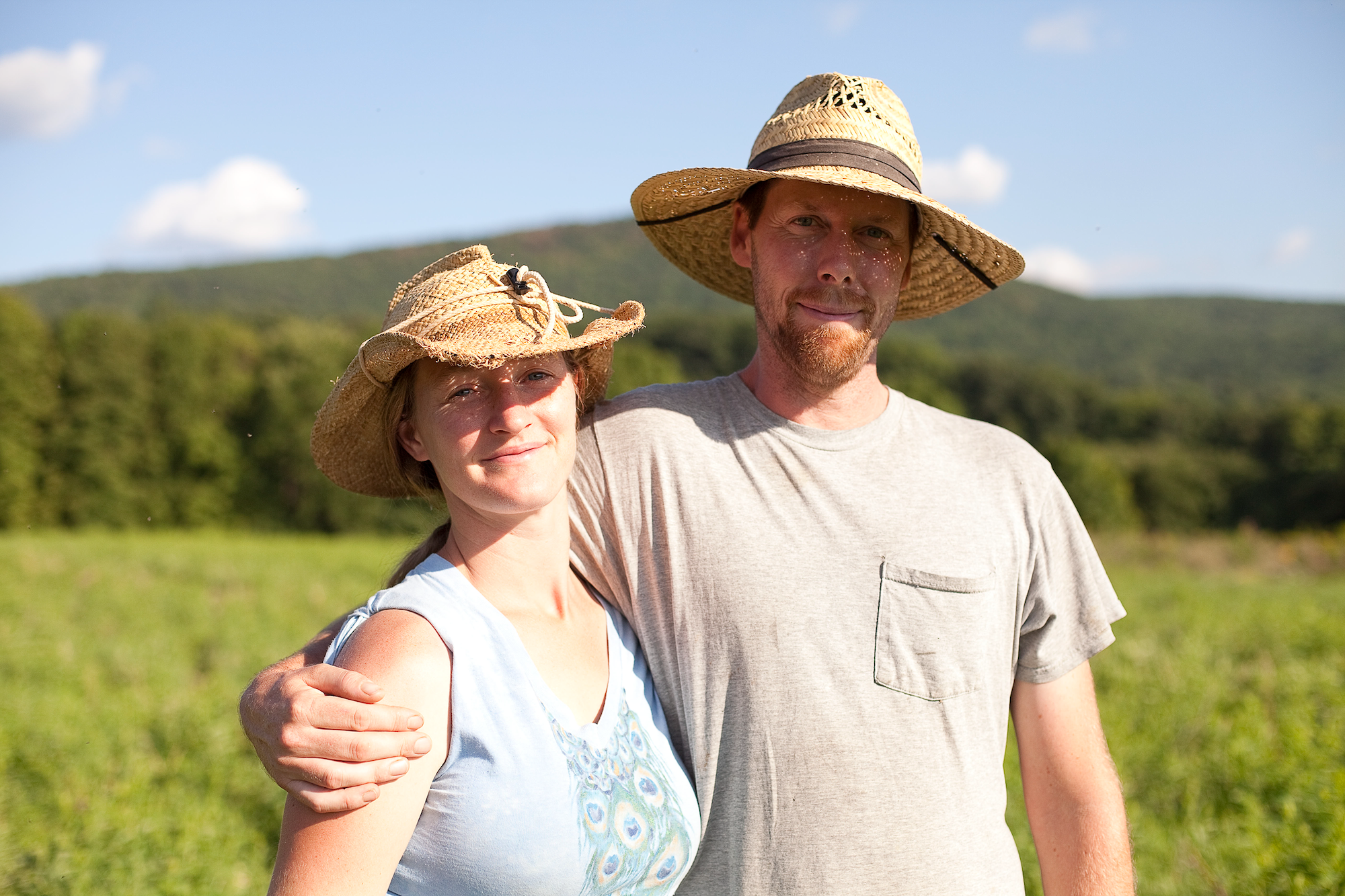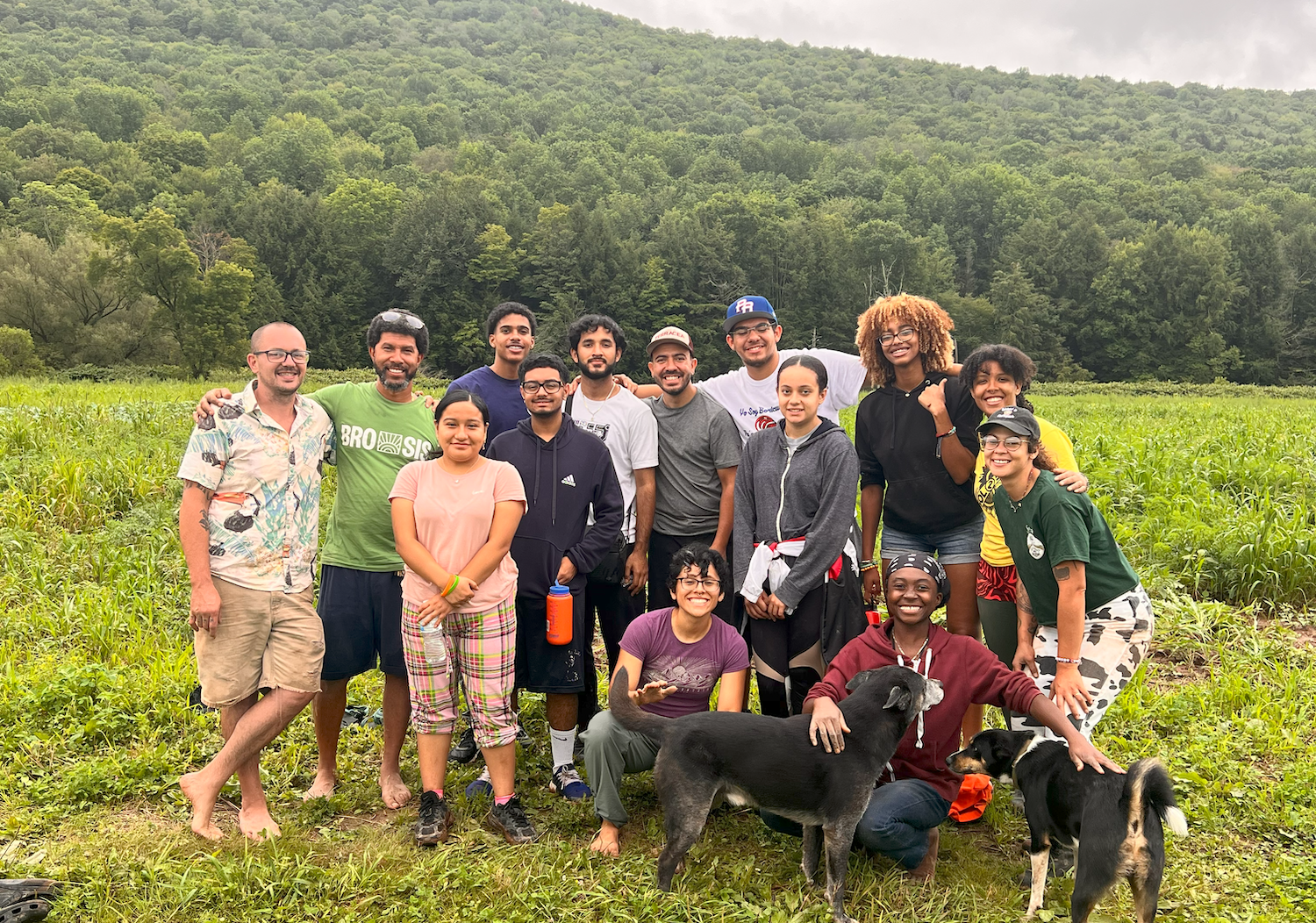F+S SPOTLIGHT
From Fields to Forks
From Fields
to Forks
Bridging the Gap to Land Ownership for Aspiring Farmers

Photo: West Branch Commons, a community land trust focused on supporting QTBIPOC farmers with equitable land access.
Last week we brought you the story of The Upstate Curious Team at Compass and their journey to pledging to raise $1M for American Farmland Trust’s new initiative: The New York Farmland Access Fund.
This special partnership has inspired many friends of F+S to learn more about the critical issue of farmland access that impacts everyone who cares about having fresh, local food from New York farms. There’s a saying that farming is hard to get into – and it’s hard to get out of. Both ends of the journey are ripe with challenges.
This week we’re bringing you the stories of two generations of farmers facing two very different challenges, and how in both cases, American Farmland Trust was able to help.
TOM
HUTSON
Tom Hutson is a lifelong steward of land, whose rich bottom-land soils filter drinking water for millions of residents in New York City. Tom was in New York City to accept a Steward of the Land award from American Farmland Trust in 2006, when he made a point of pulling a plastic bag from his pocket filled with rich soil collected from his farm and affectionately describing its contents to the crowd. Seventeen years later, Tom remains an innovator in stewardship – of the soil itself – and in thinking about its future.
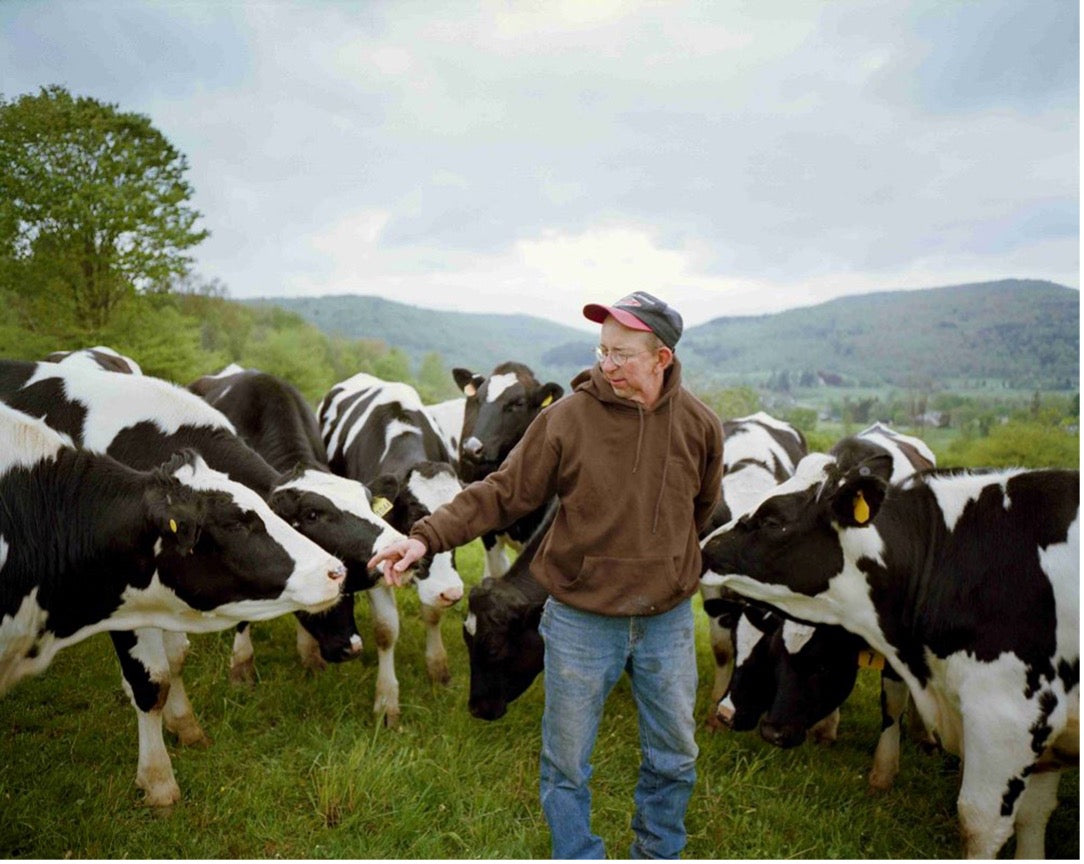
Upstate Curious Team at Compass

“I’m a farmer, so you just have to understand one thing,” said Delaware County dairy farmer Tom Hutson, as he held up a plastic bag of soil scooped from his family’s 380-acre farm. “This is gold to me.”
Tom doesn’t concern himself too much with trends, but he can’t help being a part of this one. A third of New York’s farmers, nearly 17,000 farmers, are 65 and older, owning two million acres of farmland that is expected to change hands in the coming years. Many elder farmers don’t have a successor in line to take over, or adequate funds to retire without selling the farm.
This was the case for Tom, who didn’t have heirs to pass the farm on to. Land in this precarious situation is at high risk of being lost to development and taken out of farming forever. In New York State, we lose 51 acres of farmland every day to development and other forms of fragmentation.
At the same time, young, beginning, and historically underserved farmers face major barriers finding farmland at prices they can afford. Access to land is the number one challenge facing new farmers. Tom had a life-changing moment at American Farmland Trust’s “No Farms No Food” rally in 2011, where he heard aspiring new farmers talk about how difficult it can be to find land in the Hudson Valley
30%
OF NY FARMERS ARE OVER AGE 65
2 million
ACRES OF NY FARMLAND ARE AT RISK
<5%
OF ALL FARMS ARE BIPOC-OWNED OR OPERATED
“I began listening to some of the speakers, and it enlightened me,” Tom said. “I thought, ‘There are people who really do want to farm and deserve a chance – it made sense to me to use the farm to help young people get started.”
Decades ago, Tom had permanently protected his farm with a conservation easement, a voluntary program that farmers can utilize to keep their land in agriculture. In Tom’s case, it also contributed to clean drinking water from his watershed for millions of people living downstate in New York City. It can also help future generations to afford the land, as it’s no longer able to be subdivided for development, reducing its market value. Even so, land is expensive, and it’s hard for a young farmer or couple to finance a property with hundreds of acres, along with the start-up costs of a new farm business.
This year, Tom decided to sell his farm to American Farmland Trust in exchange for cash and a charitable gift annuity that will provide him with income for the rest of his life as he transitions out of farming. AFT is leasing the land to new and neighboring farmers, and exploring options with a cooperative farming entity, which could purchase the farm and steward it long-term with affordable rates to new farmers.
WEST BRANCH COMMONS
The story of West Branch Commons is a story about the future of farming. There is growing interest among young people to start farming, including BIPOC, women, queer and trans folks, and other identities that have faced added barriers to land access on top of the broader affordability issues for purchasing land. At the same time, New York is losing farmland at an alarming rate of 51 acres every single day to development and uses that threaten farming.

American Farmland Trust saw an opportunity to try a different approach to farmland access. Despite not having heirs to pass the farm on to, Tom was interested in making land available to a new generation of farmers, and conversations began around what an alternative model of land ownership could look like. Collaborating with partners at Catskill Agrarian Alliance, the concept of the West Branch Commons was born. AFT has since purchased the land, giving Tom the financial security he needs to step back from farming, and buying time for an incoming generation of farmers to take full ownership of the farm.
Francis Yu, Deputy Director of the Catskill Agrarian Alliance, has partnered closely with American Farmland Trust staff on shaping the idea of the West Branch Commons, a community land trust that centers equitable land access for historically underserved producers and communities, specifically QTBIPOC farmers.
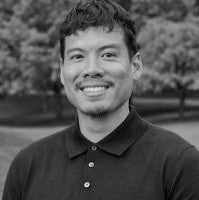
“If Tom had gone to the private market with this property, we wouldn’t have had this opportunity,” Francis says. “The land would have been lost to us, like much of the land that is lost to folks like us.”
“We’re trying to do away with how we can reap a profit from the land and move to how can we honor the land for the reciprocity that it gives us,” Francis says. They often ask, “How can we bring [reciprocity] back to the land itself and to the soil, and how can we make it accessible to communities that don’t have access to land?”
The farmers of the West Branch Commons are currently leasing the land from AFT while raising funds to purchase the property for permanent, secure access for the farmers within the commons. Structured as a 501(c)3 Community Land Trust, the West Branch Commons currently supports four farmers and their enterprises, and Francis envisions six to eight enterprises being supported on the land in the future, through intentional growth and relationship building.
The West Branch Commons story shines a light on the opportunities we can uncover when we think beyond the conventional way of doing things. It’s easy for a farmer to sell their land to a developer, or to the highest bidder. It’s much more difficult to wade through the process of creating a beneficial arrangement for a new farmer, or group of farmers, with fewer capital resources, while taking care of the retiring farmer who devoted much of their lifetime to the land. In the case of WBC, it has gone even further, as Tom shares his knowledge with the next generation, and they share a sense of community with the land.
Follow along and join the growing community of support for West Branch Commons! You can join their newsletter or donate here.
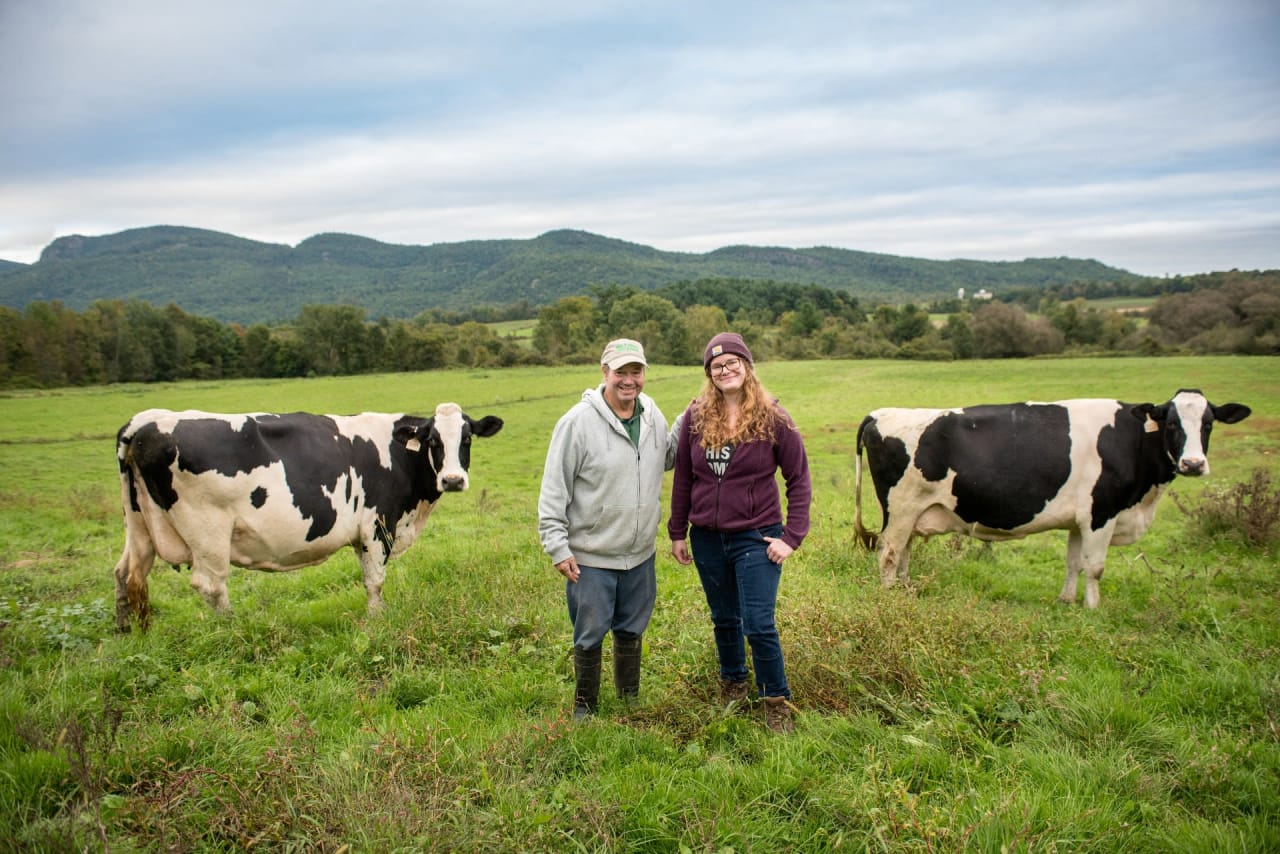
The New York Farmland Access Fund envisions a future where more farmers from diverse backgrounds who center regenerative farming practices in their work can gain equitable access to the land. A thriving food and farming system is at the heart of a thriving world. The future of farming, here in New York state, and nationwide, hinges on what we do next.
If these stories resonate with you, please consider helping The Upstate Curious Team at Compas reach their $1M pledge by sharing these stories with friends and family and donating directly using the links below.



